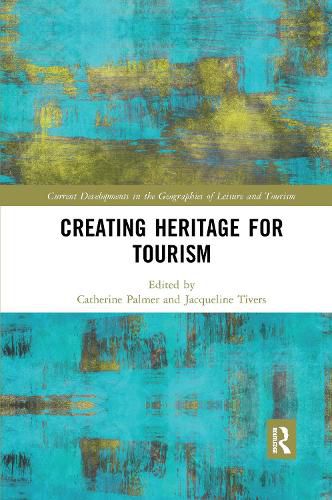Readings Newsletter
Become a Readings Member to make your shopping experience even easier.
Sign in or sign up for free!
You’re not far away from qualifying for FREE standard shipping within Australia
You’ve qualified for FREE standard shipping within Australia
The cart is loading…






What does ‘heritage’ mean in the twenty-first century? Traditional ideas of heritage involve places where objects, landscapes, people and ideas are venerated and reproduced over time as an inheritance for future generations. To speak of heritage is to speak of a relationship between the past, the present and the future. However, it is a past recreated for economic gain, hence sectors such as culinary tourism, ecotourism, cultural tourism and film tourism have employed the heritage label to attract visitors.
This interdisciplinary book furthers understanding on how heritage is socially constructed, interpreted and experienced within different geographic and cultural contexts, in both Western and non-Western settings. Subjects discussed include Welsh linguistic heritage, tango, mushroom tourism, Turkish coffee, literary tourism and the techniques employed to construct tourist accommodation. By focusing upon heritage creation in the context of tourism, the book moves beyond traditional debates about ‘authentic heritage’ to focus on how something becomes heritage for use in the present.
This timely volume will be of interest to students and researchers in tourism, heritage studies, geography, museum studies and cultural studies.
$9.00 standard shipping within Australia
FREE standard shipping within Australia for orders over $100.00
Express & International shipping calculated at checkout
What does ‘heritage’ mean in the twenty-first century? Traditional ideas of heritage involve places where objects, landscapes, people and ideas are venerated and reproduced over time as an inheritance for future generations. To speak of heritage is to speak of a relationship between the past, the present and the future. However, it is a past recreated for economic gain, hence sectors such as culinary tourism, ecotourism, cultural tourism and film tourism have employed the heritage label to attract visitors.
This interdisciplinary book furthers understanding on how heritage is socially constructed, interpreted and experienced within different geographic and cultural contexts, in both Western and non-Western settings. Subjects discussed include Welsh linguistic heritage, tango, mushroom tourism, Turkish coffee, literary tourism and the techniques employed to construct tourist accommodation. By focusing upon heritage creation in the context of tourism, the book moves beyond traditional debates about ‘authentic heritage’ to focus on how something becomes heritage for use in the present.
This timely volume will be of interest to students and researchers in tourism, heritage studies, geography, museum studies and cultural studies.